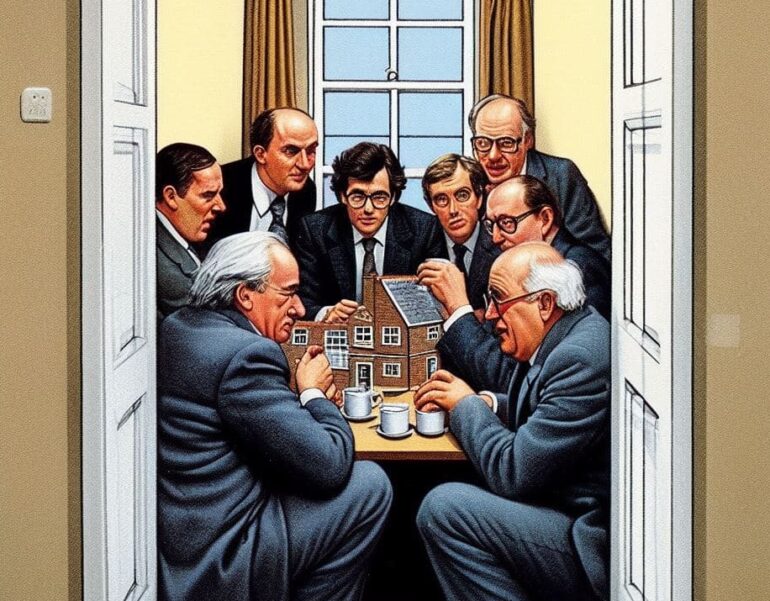The Institute of Economic Affairs (IEA) has announced the republication of its influential 1988 report, No Room! No Room! The Costs of the British Town and Country Planning System, authored by the late Professor Alan Evans.
The original analysis, which laid out the restrictive nature of Britain’s planning system, is being reissued to draw attention to issues that remain critical nearly 37 years later. The reprint includes a new foreword by Dr Kristian Niemietz, the IEA’s editorial director, who highlights how the report’s warnings have become even more pertinent today.
Niemietz noted, “Despite the old-fashioned typesetting… it felt as if it had been published last week,” adding that the issues Evans identified have only worsened over time. While the housing affordability ratio was high in 1988, it has now risen to over eight nationwide and nearly twelve in London, making homeownership increasingly unattainable for many.
The report underscores Britain’s severe shortfall in housing supply, with a need for at least 3.4 million additional homes to match the levels seen in European counterparts. Contrary to misconceptions, the UK has one of the lowest housing vacancy rates in the OECD, with less than 1% of housing stock unoccupied in the long term. The scarcity is largely attributed to planning policies that have driven up land prices—housing land in the Southeast now costs more than 200 times the price of agricultural land.
Lord Richard Best, an independent crossbencher and former chair of the Affordable Housing Commission, recalled the report’s initial publication, remarking, “Much of it is now broadly accepted by most housing experts—and indeed by the current Government.”
The recommendations outlined in No Room! No Room! include compensating residents affected by new developments, reducing discretionary elements in planning to curb lobbying, targeted green belt development, decentralising tax incentives to encourage local planning permissions, and streamlining the overall planning process. These measures aim to create a more flexible system that can address the housing crisis by increasing supply and reducing costs.
Sam Bowman, editor of Works in Progress, noted the enduring value of the report: “It proves that many explanations for the housing shortage that are popular today are wrong. We cannot blame high house prices on ‘financialisation’ or immigration if the problem was already deeply embedded by the 1980s. This report shows that only undoing postwar policy mistakes will restore Britain’s housing market and economy to health.”
The IEA hopes the republication of this seminal work will reignite the debate on planning reform and lead to meaningful changes in addressing the UK’s housing crisis.



